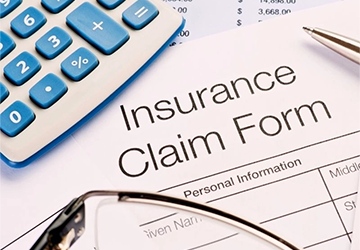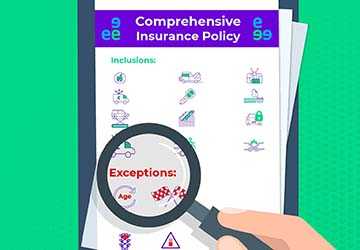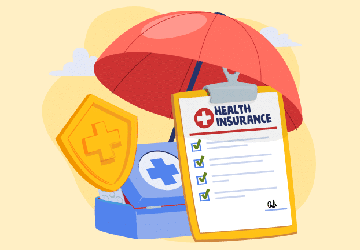12 Terms to Understand Before Buying Auto Insurance in 2023
Have you ever been confused by the complicated language when buying car insurance?
Picture this: You're sitting at your desk surrounded by piles of paperwork trying to understand the car insurance options that lie before you.
But as you flip through the documentation, you'll encounter a plethora of confusing terms and concepts, leaving you feeling overwhelmed and unsure. Questions swirl in your mind. What does "deductible" mean?
How is "kaskoversicherung" different from "kaskoversicherung"? What exactly is "Uninsured/Underinsured Motorist Protection"? If this scenario seems all too familiar to you, fear not.
We're here to demystify the terms for you so you can navigate the world of auto insurance with confidence and clarity.
In this blog post, we explain 12 key terms you need to know before buying auto insurance.
Whether you're new to owning a car or just want to brush up on your insurance knowledge, we'll give you the information you need to make confident decisions.
What is car insurance?
Auto insurance is a contract you enter into with an insurance company to protect your money in the event of an unfortunate accident with your vehicle, such as a collision, theft, or other covered accident.
You pay a certain amount (called a premium) and in return the insurance company agrees to support you and provide you with the financial assistance specified in the contract.
Remember that auto insurance rules and regulations vary from country to country and even state to state. It is important to be familiar with the relevant local laws.
12 Auto Insurance Terms You Need to Know
Now let’s take a look at 12 important terms you need to know before buying car insurance:
1. Overdose
The initial amount that you must pay out of your own pocket before your insurance policy kicks in and begins providing coverage is called a deductible.
If you choose a higher deductible, your monthly premium will usually be lower, which means you'll pay less each month.
However, it's important to choose an excess amount that fits your budget and the risk you're willing to take.
2. Bonuses
Your insurance will require you to pay a certain amount to ensure your protection. This payment is called your premium. This payment is usually made monthly or annually.
The amount of coverage you pay can be affected by a variety of factors, including your driving style, age and type of car. These factors play a role in determining your premiums.

3. Liability insurance
This type of coverage can reduce your financial burden if you injure someone or damage their property in an accident. It usually covers bodily injury and property damage.
4. Comprehensive coverage
Comprehensive coverage provides comprehensive coverage to protect your vehicle from non-accident damage. This includes protection against theft, vandalism and natural disasters.
When considering a collision damage waiver, it's important to understand the limits of coverage and any exclusions.
5. Anti-collision
Collision insurance is designed to help you pay for repairs or replacements if your vehicle is damaged in a collision, whether with another vehicle or with an object, regardless of who is responsible.
It's important to carefully consider coverage and any riders to find the best collision insurance for you.
6. Coverage for Uninsured/Underinsured Motorists
This specific type of insurance plan is designed to help you pay for damages caused in the event of an accident with an uninsured or insufficient insurance coverage driver.
It can help you pay for medical bills, repair damage to property, and pay for other related costs.
7. Personal Protection (PIP)
PIP insurance is designed to help pay for medical expenses, loss of income, and other costs incurred when you are injured in a car accident, no matter who caused it.
Different states have different rules about whether you have to get it or if it's optional.
Eight, personal injury liability
With personal injury insurance, you can ensure that the injuries of others are taken care of in the event of an accident for which you are responsible.
It will come in handy when there is a need to pay for their medical bills, rehab costs, and even possible legal bills should they decide to take you to court.

9. Liability for Property Loss
Property damage liability insurance ensures compensation for damage to other people's property in the event of an accident. It covers costs associated with damage to another person's property.
It covers not only the cost of repairing the vehicle, but also damage to buildings, fences or other property.
10. Coverage
Insurance companies use underwriting as a method of analyzing and determining the potential dangers involved in insuring a particular person or vehicle.
Understanding the underwriting process will help you understand how premiums are determined.
11. Exclusions
Certain situations or events that are not covered by your insurance and therefore are not covered.
Be sure to take the time to review these exceptions carefully so that you recognize any limitations or areas where your coverage may fall short.
12. Policy Restrictions
A limit of insurance represents the maximum amount an insurance company is willing to provide for a particular coverage. It's important to choose boundaries that will adequately protect you and your property in the event of an unfortunate event.
Diploma
Exploring the world of auto insurance doesn't have to be a daunting journey. By becoming familiar with these 12 essential terms, you'll have the confidence to make informed decisions when buying insurance.
By understanding these conditions and taking proactive steps, you'll be well prepared to protect yourself, your vehicle, and your finances for the road ahead.
Wish you a happy and safe driving!





